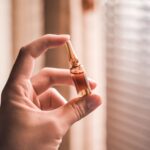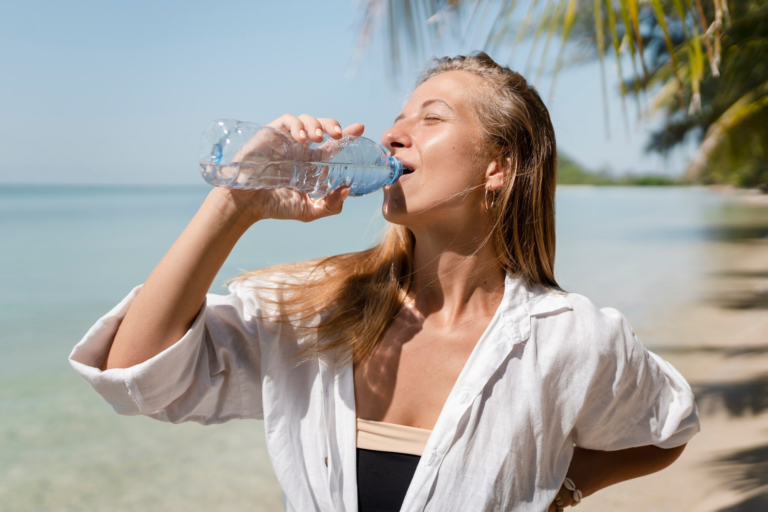Whether living or visiting in Brisbane, the weather tends to play a crucial role on your skin. The subtropical Brisbane climate, characterized by very strong sun and humidity, brings different trials in keeping up healthy skin. It is thus very important to learn how Brisbane’s weather affects your skin by developing successful skincare strategies to avoid common problems that may develop. This blog will give insight into how Brisbane weather affects your skin and practical tips to protect it.

Understanding Brisbane Weather
General Climate Characteristics
Brisbane’s climate is warm and humid, with audible seasonal variations. The subtropical nature of the weather in Brisbane translates to sweltering humid summers and mild dry winters. The relative humidity of this city is high, more so during the summer months, which can have major effects on your skin.
Seasonal Variations
Summers in Brisbane can get very hot, with temperatures soaring above 30°C. Winters are much milder, with temperatures usually between 10°C and 21°C. Knowing these trends in seasonal change is important to alter your skincare routine as the weather changes.
How Brisbane Weather Affects Your Skin
Effects of Humidity
High humidity is one of the most defining features of Brisbane’s weather, especially during summer. Though air filled with moisture sounds good, it causes a host of skin problems. Due to excess moisture in the air, your skin tends to release more oils, which will result in pores and acne growth. Not only that but despite high levels of moisture in the atmosphere, your skin can get dehydrated with increased sweating.
Sun Exposure
The weather in Brisbane contains a high percentage of UV radiation, thus demanding adequate sun protection. This can result in sunburn and hyperpigmentation, and in the long term, prematurity in aging and skin cancer. Since the UV index is normally high in Brisbane, sunscreen and protective measures against its radiation are necessary.
Seasonal Changes
The Brisbane weather brings different seasons, and with them, the need for varying skincare. Increased oil production could mean frequent outbreaks in summer. During winter it’s drier, and thus you tend to have dry irritated skin. Transitional seasons could be tricky on combination skin, whereby one must adjust their Face Routine accordingly.
Common Skin Problems in Brisbane
Several common skin problems are caused by the kind of weather experienced in Brisbane:
- Acne and Breakouts: High humidity can increase the production of oils in skin cells, and extract impurities into pores, leading to acne and breakouts.
- Dryness and Flakiness: The drier winter air draws moisture from your skin and causes it to be dry and flaky.
- Sunburn and Hyperpigmentation: This is due to the hard UV exposure causing sunburn and black spots.
- Premature Aging: UV radiation may quicken the natural process of aging and eventually result in wrinkles and fine lines.
Brisbane Weather Skin Care Tips
Daily Routine of Skin Care
Establishing a consistent skincare routine is necessary if you want to be able to take on the Brisbane weather. Begin by using a gentle cleanser that cleanses dirt and oil from your skin’s surface without removing natural moisture. Apply a light, oil-free moisturizer afterwards to keep your skin hydrated. Use SPF daily, even when it’s overcast, for protection from UV radiation.
Sun Protection Strategies
The key to protecting your skin in Brisbane is sun protection. Slather on a broad-spectrum sunscreen with at least SPF 30; apply and reapply within two hours or immediately after swimming. Wear protective clothing, like wide-brimmed hats and long sleeves, to protect your skin from the direct rays of the sun. Stay cool in the shade or air-conditioning, particularly between peak sun hours from 10 a.m. to 4 p.m., while keeping UV exposure at bay.
Hydration and Nutrition
Stay well-hydrated, mostly during the humid seasons. Drink at least eight glasses of water a day to keep your skin well-moisturized from within. Take foods rich in antioxidants and vitamins, such as fruits and vegetables, to help you nourish your skin. Avoid elements that dehydrate the skin, such as caffeine and alcohol, which dry out the skin even more.
Seasonal Skincare Adjustments
Summer Skincare Tips
In hot and sweaty summers, use light, non-comedogenic products that will not clog the pores. Use oil-free moisturizers and sunscreens to control the overproduction of oil in the body. There are blotting papers available in the market, which can help to control excess shine from the face throughout the day. Use extra measures of protection like sunglasses and umbrellas for sun protection.
Winter Skincare Tips
Switch to heavier moisturizers in winter that will help counter dryness. Look for products containing ingredients known to quench water like hyaluronic acid and glycerin. A humidifier can be run inside the house, which is going to add some moisture to the air. This keeps your skin from drying out. Be gentle when exfoliating; removing dead cells will also help moisturizers absorb properly.
Professional Treatments for Skin Affected by Brisbane Weather
Additional benefits for skin problems caused by weather may include professional treatments, which can be necessary sometimes when home care is not adequately addressing an individual’s skin issues. Regular facials should help to keep skin clear and well-hydrated. A dermatologist should be consulted for such treatments as a chemical peel, microdermabrasion, laser therapy, etc., on specific concerns like acne scars, pigmentation, and fine lines.
Frequently Asked Questions
How does the Brisbane weather affect sensitive skin?
The weather in Brisbane can cause sensitive skin because of the greater degree of humidity and UV exposure. Use gentle, fragrance-free products and ensure protection from the sun adequately.
Can humidity be one of the causes of breakouts?
Yes, high humidity is linked to increased oil production, leading to clogged pores and breakouts. Stick to oil-free and non-comedogenic skincare products to help keep this in check.
What level of SPF protection is recommended for daily use in Brisbane?
- For daily use in Brisbane, a minimum of SPF 30 sunscreen is highly advisable to counter UV radiation.
How often might I need to reapply sunscreen in Brisbane?
- Slap on some more sunscreen every two hours, especially when headed outdoors, after swimming, or sweating.
What are some effective home remedies for sunburn?
- Aloe vera gel, cool compresses, and over-the-counter anti-inflammatory creams work well in soothing sunburn. Stay well-hydrated and avoid more exposure to the sun.
How can I prevent premature aging caused by Brisbane weather?
- Use broad-spectrum sunscreen daily, and protective clothing, and include antioxidants in your skincare routine to fight free radicals.
Do I have to adapt my skincare to changing seasons?
- Well, this means that, with the different seasons in Brisbane, different skin needs will arise, and so your skincare routine will adjust accordingly.
Conclusion
Brisbane weather is special in its own right when it comes to healthy skin. By adopting a local understanding of the climatic effects on one’s skin and using that in tailoring skincare routines, most skin problems can be reduced and radiant skin can be sustained. Stay hydrated, protect your skin from the sun, and seasonally change your skincare routine to help your skin be strong. With these tips, you’ll be able to confidently face the effects of Brisbane weather on your skin and keep glowing skin.











